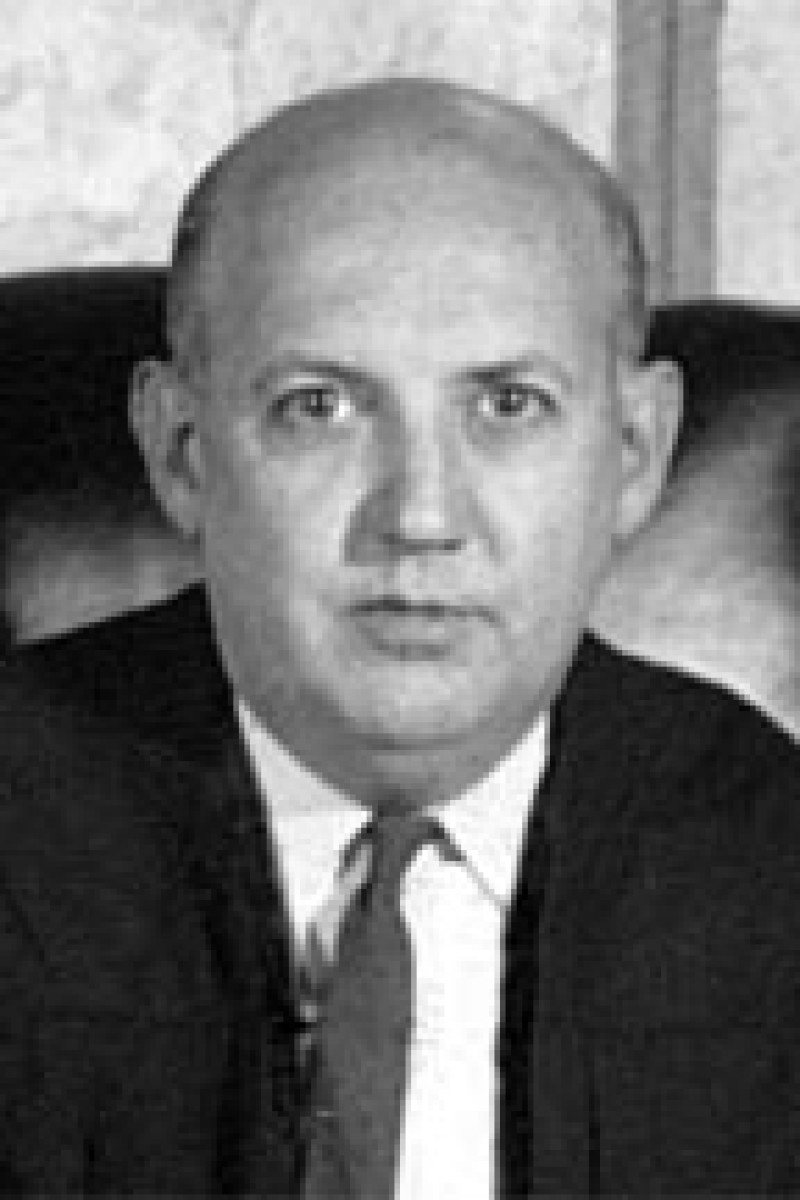James Finley Bell
James Finley Bell Jr. became the 115th Supreme Court of Ohio Justice after winning election in 1954 and serving until 1962, when he resigned to return to private law practice. Among the many notable cases he heard as Justice was the renowned Sam Sheppard murder case.
Bell was born in Madison County on Jan. 12, 1915 to James F. Sr. and Rowena Moore Bell. He received his undergraduate education at DePauw University in New Castle, Ind., graduating in 1936. He went on to obtain his law degree from Ohio State University. Following his admission to the Ohio bar in 1939, Bell began private law practice in London, Ohio. From 1942 to 1945, he served with the FBI as a special agent, then returned to London and resumed private practice.
Upon his father’s death in 1947, Bell was appointed to succeed his father as judge of the Madison County Court of Common Pleas. Bell was elected by Madison County voters in 1948 to complete his father’s unexpired term and was elected to his own six-year term in 1950.
Bell campaigned successfully for a seat on the Supreme Court in 1954, and was re-elected in 1960. After serving less than two years of his second term, he submitted his resignation on Sept. 18, 1962, which took effect on Oct. 8, 1962. He returned to private practice, joining the Columbus law firm of Power, Griffith, Jones & Bell.
While on the Supreme Court, Bell wrote the majority opinion in the Dr. Sam Sheppard murder case. The court’s majority opinion in 1956 in State of Ohio v. Sheppard affirmed the conviction of Sheppard for the murder of his wife Marilyn. Bell wrote that the Cuyahoga County Court of Common Pleas had not abused its discretion, and affirmed the Court’s opinion that a conviction in a criminal case should not be reversed for prejudice because jurors, in the presence of bailiffs, contacted family members.
Bell further wrote that in an appeal of a conviction in a criminal case, appellate courts will not retry the facts of the case, but may consider whether evidence is sufficient for submission to a jury or to support a conviction. When circumstantial evidence alone is used to prove the elements of the crime and the jury finds no reasonable hypothesis of innocence after considering all the evidence, and the facts of the case are irreconcilable with any hypothesis other than guilt, it is the jury’s duty to convict, he wrote.
In June 1965, the U.S. Supreme Court overturned Sheppard’s conviction and ordered a new trial. In December 1966, after deliberating only 12 hours at the conclusion of the second trial, a Cuyahoga County jury acquitted Sheppard.
Bell’s final association with Ohio politics came in 1970 when he was to serve as John Glenn’s campaign manager to win the Democratic Party’s nomination for election to the U.S. Senate until the campaign was abandoned after Glenn suffered an injury in a fall.
In 1971, Bell and his wife Charlotte Engard Bell moved to Holmes Beach, Fla., where he became general counsel for the General Telephone Company of Florida. The couple had two children. They later divorced and he married Gloria Ingles Daubenspeck Smith. He retired from the company in 1980 and founded an arbitration firm. Bell died at his home in Bradenton, Fla. on Sept. 23, 2005.

b. Jan. 12, 1915
d. Sept. 23, 2005
115th Justice of the Supreme Court of Ohio
TERM
Jan 1, 1955
to Oct 8, 1962
